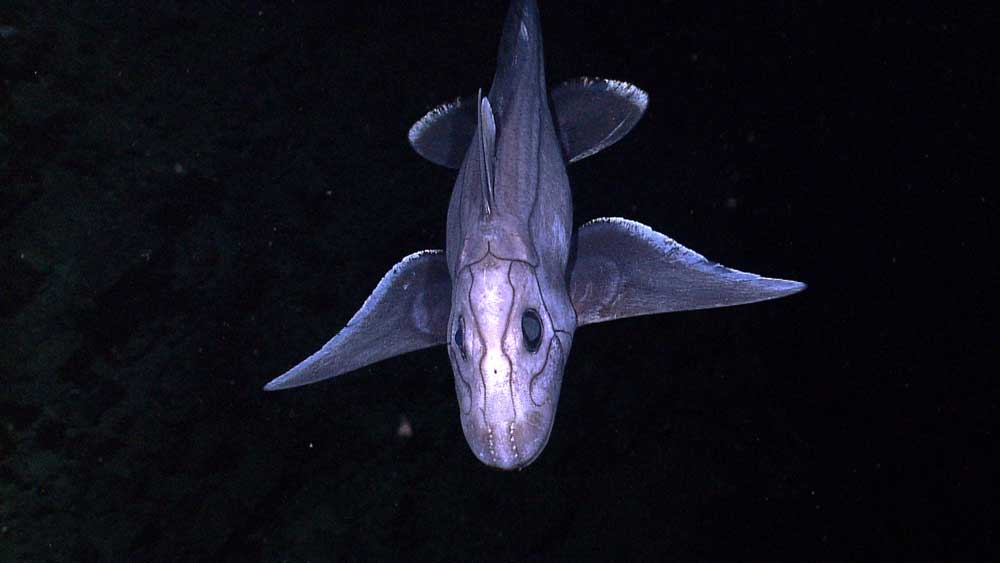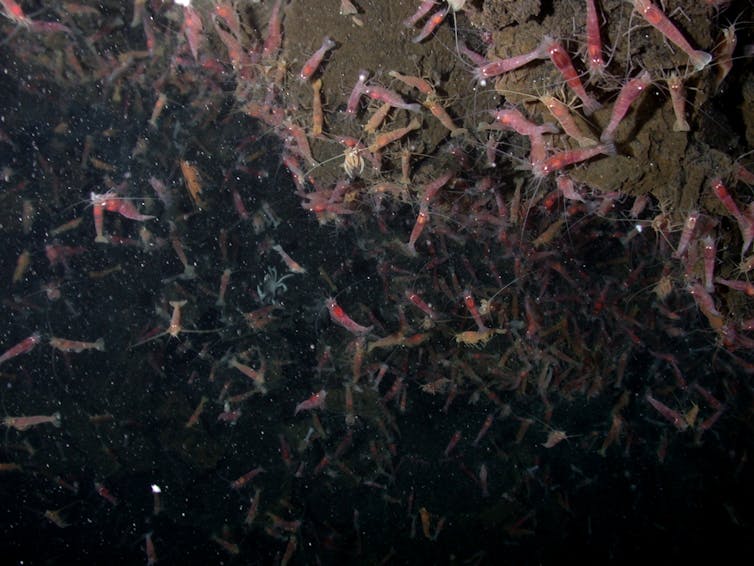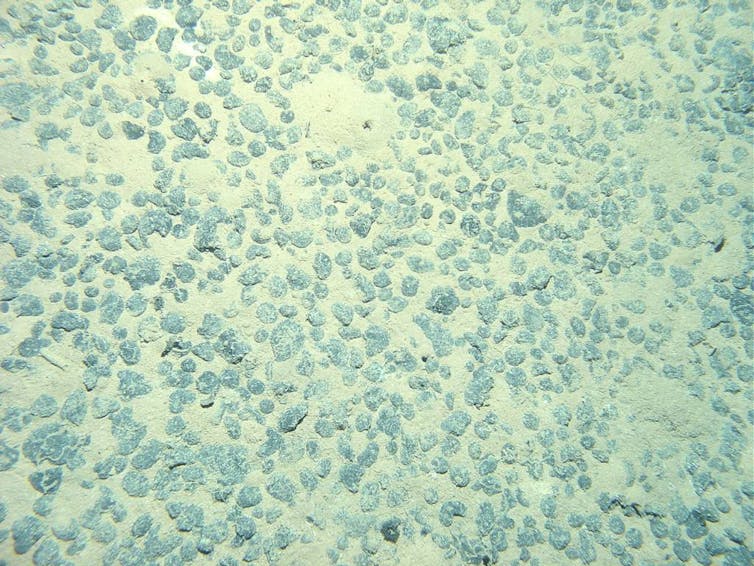
By Erik Zhivkoplias and Robert Blasiak
Thousands of genes from deep-sea marine life are being used to create new commercial products ranging from pharmaceuticals to cosmetics. Genes are segments of DNA that provide instructions for making other molecules that are essential for the structure and function of living organisms.
In a paper we recently published with other colleagues, we investigated how bioprospecting – the search and discovery of potential products from animals, plants and microbes – could serve as a less destructive alternative to deep-sea mining.
Notably, all of the largest companies using marine genes have sourced them from deep-sea organisms in some capacity. Deep-sea animals possess unique genes that allow them to live in an environment unlike anything else on Earth, with its intense cold, crushing pressure and total darkness.
What are these organisms? Most are microbes that have evolved over millions of years to thrive in extreme conditions. Among the most uniquely adapted are those found around hydrothermal vents, where mineral-rich seawater, superheated by magma, erupts from cracks in the ocean floor.
Deep-sea enzymes, a type of molecule encoded by the genes of organisms that live in extreme environments, are stable in conditions that other enzymes often cannot function. Their ability to catalyse chemical reactions under high pressure and a wide range of temperatures makes them commercially valuable for making industrial and consumer products, including drugs, food, detergents and biofuels.
Bioprospecting in the deep sea
One remarkable example involves the bacteria that live in very salty habitats. This microbe was isolated from marine sediments collected at a depth of 1,050 meters near the Iheya ridge, 130 kilometers offshore from Iheya Island, Japan.

NOAA
One of its enzymes has been shown to enhance the conversion of farm waste into glucose by helping break down cellulose into easily degradable pulp. This is a crucial step for converting biomass into ethanol, a renewable biofuel.
Another enzyme extracted from a bacterium that exists under extremely high temperatures has been found to be highly efficient in completely removing lactose from milk.
Some organisms contribute to multiple inventions, like a deep-sea worm collected at a depth of 2,625 meters from a hydrothermal vent on the East Pacific Rise, about 600 km off the Mexican coast. The worm hosted a bacterium that produces a molecule that was used to develop a skin cream, as it helps make skin less susceptible to damage from the sun and pollution. The unusual ability of this bacterium to live at temperatures above 100°C also made it a model organism for overcoming overheating in small satellites in Earth’s orbit.
This is just a few examples among over 16,000 proteins derived from deep-sea species and used in technology, catalogued in this database.
The potential for innovation from deep-sea species has not been fully explored. As of 2024, only a quarter of the seabed has been mapped and most deep-sea species remain undiscovered.
The dangers of mining
But the essential role of deep-sea life in the functioning of Earth’s systems may be far greater than previously understood.
Researchers recently discovered an unusually high concentration of oxygen on the seafloor in the Pacific Ocean, referred to as “dark oxygen”. This oxygen may be being produced by electrolysis – when an electric current separates water into hydrogen and oxygen.
Where might an electrical charge be generated at the bottom of the ocean? Perhaps on the surfaces of polymetallic nodules, rock-like formations composed of lots of different metals which can create differences in electrical potential when interacting with seawater. The formation of these metals is influenced by the activity of microbes living on them, which in turn affects the chemical properties of the surrounding environment. The production of dark oxygen could be vital for the respiration of other species living in the ocean where there is no sunlight.
Unfortunately, deep-sea ecosystems are under threat from seabed mining for minerals. Polymetallic nodules are considered potential resources for manganese, nickel, and rare earth elements – materials used to make electronics and computers. The Clarion-Clipperton Zone, a Pacific region where dark oxygen was recently discovered, has already been divided into 16 mining claims.

Abramax/Wikipedia, CC BY-SA
Researchers and campaigners have warned that deep-sea mining could severely damage marine ecosystems and have highlighted the lack of scientific consensus on the long-term consequences of these operations. Once disturbed, the evolutionary history these ecosystems represent could be lost forever.
The International Seabed Authority oversees the management of mining activities in international waters. Although it has not yet authorised any commercial mining, it has faced criticism for allegedly dismissing environmental concerns. The recent election of the new ISA secretary-general, Leticia Carvalho, offers an opportunity to safeguard vital areas of the world’s oceans, crucial for both nature and human wellbeing.
We must rethink the true value of the deep sea and consider what losing it may mean for the rest of the world..
![]()
Erik Zhivkoplias is a Researcher in Marine Governance and Robert Blasiak is a Research Fellow in Ocean Management, both at Stockholm University.





























Leave a Reply